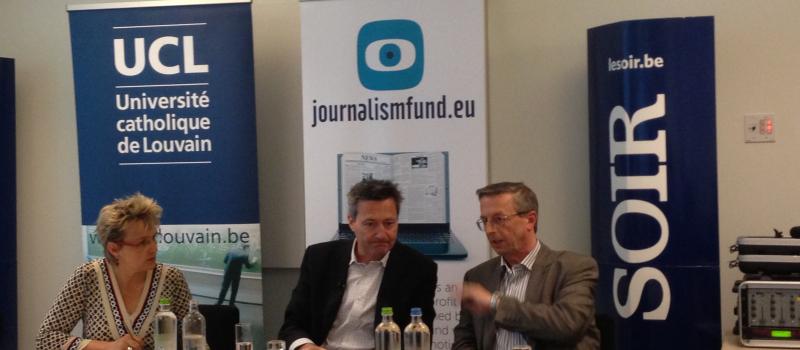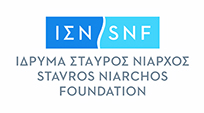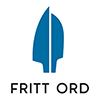
BRUSSELS - On Tuesday evening 11 June, former editor-in-chief of Le Soir Béatrice Delvaux and investigative journalist Alain Lallemand talked with ICIJ director Gerard Ryle about offshore leaks, the workings of ICIJ and the future of investigative journalism.
About 50 people had gathered in the offices of Le Soir to hear Gerard Ryle talk about the major tax haven scandal that occupied front pages all over the world in the beginning of April. The event was hosted by Le Soir and co-organised by the Université Catholique de Louvain, Journalismfund.eu and the Pascal Decroos Fund.
When asked to introduce himself, Ryle talked about his years as an investigative journalist in Ireland and Australia before being appointed director of the ICIJ. “I enjoyed working as an investigative reporter, but got frustrated after a while: whenever you’d find a good story and tell your bosses about it, they would say they wanted it the next day. I learned that if you have a story, you should work on it by yourself and only when you’re almost finished tell your newspaper about it.” Ryle had transitioned from being an investigative reporter to being more of a manager in the newsroom by the time he got a call from a former professor of him in America urging him to send in an application for the position of ICIJ director. “They had never had a director that wasn’t an American.”
Ryle had already started working on offshore leaks at the time of his applying for the position. “Offshore leaks went back to my work on the Firepower International case.” It was one of the biggest fraud cases ever in Australia. The company claimed to have produced a ‘Firepower Pill’ that was advertised as being able to ‘lower fuel consumption, reduce emissions, [and] clean and maintain your engine’. “It was an absolute fraud, but they had everybody fooled. In the end they were so big and had started sponsoring major sports events, to such an extent that it was almost impossible to criticise them anymore, let alone bring the truth to light.”
Through Firepower International’s offshoring, Ryle came to know quite a lot about tax havens. He had heard there was a disc somewhere with information on people and companies involved with offshoring and wanted to get his hands on it. As it turned out, the British, American and Australian tax offices had all received the disc a year before Ryle himself eventually did. “The person who got me the disc had wanted to leak to the authorities first, for whatever reason. It wasn’t until they noticed that the tax offices didn’t do anything with it, that they turned to a journalist."
“After I’d received the disc, during the day I would do my job at the newspaper, while at night I worked the disc. Googling names was basically the only thing I could do – who’s this Canadian guy who died under mysterious circumstances and had ties to the mafia? At that point I thought: ‘wouldn’t it be great if I could give this information to a Canadian journalist?’ He could then get to work with the Canadian names.”
“I had thought of ICIJ to make it into a sort of global story, but in fact I was somewhat frustrated that I’d never been invited to become a member. More importantly, I didn’t think ICIJ had a high enough profile. A few weeks later this phone call from America reached me and that’s when I started thinking ‘I’ll raise the profile myself’, which is what I eventually sold myself with during the job interviews.”
In order to raise the profile, Ryle asked The Guardian’s David Leigh to join the investigation when he met him at the Global Investigative Journalism Conference in Kiev. He then got some others on board as well, such as German data specialist Sebastian Mondial.
After about an hour, Delvaux and Lallemand turned to the audience, who had some questions, too.
Q: ICIJ said the impact of offshore leaks was biggest in Europe, why was that?
A: Firstly, thanks to the reporters we worked with here in Europe. Each journalist had his own research to do and could determine his own focus. They did a very good job. Secondly, by far most of the things we found out had to do with activities that are not illegal, only morally reprehensible. For most Americans, that meant that it wasn’t really a story, because there was “nothing actually wrong”.
Q: How did you manage timing? Süddeutsche Zeitung, Le Monde, The Guardian… all published on the same day.
A: Because no-one had any real advantage with breaking the deal and publishing early. You have to make sure your story is legally sound before you can publish, and it wasn’t until about a week before publication. Also, we got lucky, and you can’t beat luck in these things. In the months leading up to the publications, while we were working on the investigation, there were a number of things that raised awareness and interest in the topic of offshoring. The presidential elections in the US, with Mitt Romney being asked about his offshoring activities; Cyprus collapsing two weeks before our publication; and then a few days before we published there was the scandal in France.
Q: How do you decide who works on which stories?
A: Basically, we always brief all our members. So everyone knows what we’re working on, although they might not know the details. And if people show their interest in a certain topic, they can get more involved. For example, when we told our members about offshore leaks, there were some journalists who contacted me saying they were interested, such as Stefan Candea from Romania and Nicky Hager from New Zealand. They were then added to the team.
Q: There was quite some pressure from tax offices in Belgium and the Netherlands on journalists to hand over the data. Did you tell your members from the very start not to do it?
A: Yes, because we’re not an arm of government. If governments wanted to get the information, they should be the ones doing the investigations and funding it. Plus: three of the most important government tax offices in the world had the data all along!
Q: How will ICIJ survive after something big like this?
A: I guess if we can put ourselves out there in the world as the go-to place for journalists for good stories and a network, we’ll keep going.
Q: Why a non-profit?
A: Basically, because it’s the only way that this can be funded. Still, I have to say: we wouldn’t be anywhere without our partners, the traditional media. Not only because they employ our reporters and function as outlets for our stories, but also because working with them mitigates our legal issues. We tell our partners: ‘here is content for you to use, but you make your own editorial choices. I don’t want to be sued in 45 countries…
Q: In how far do your sponsors influence the editorial choices that you make? E.g. Soros Foundation, which is known to have made money out of activities of questionable ethics.
A: Our major funder is the Dutch Adessium Foundation. They feel the same way we do: investigative reporting is absolutely necessary, but it’s dying. We’re very lucky with them; they provide the money and then give us the freedom to do what we want. As far as Soros foundation is concerned, where our money comes from is less important to us than what we can do with it. If they give us editorial freedom, that is fine. As to our editorial independence: personally, I would not hesitate to publish George Soros’ name if it was somewhere on our disc.
The event ended with some musings on investigative journalism in general. Béatrice Delvaux admitted that success of the offshore leaks stories gave the entire newsroom an incentive to continue doing a good job. Ryle thought that for journalists, going back to the roots, investigating stories, might be the way to save the business. Delvaux: “In order to do investigative journalism, we sometimes have to get our hands dirty, because the news is not always in clean places. But that’s OK, as long as we write ourselves clean afterwards.”
By Rafael Njotea









